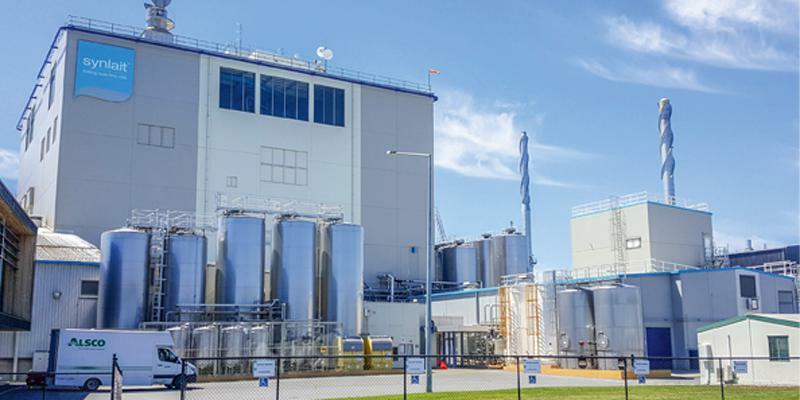
Night Milk A2, New Zealand focuses on differentiated milk
sTo differentiate themselves from their international competitors, New Zealand dairy farmers highlight their country's clean, green image. An asset to preserve and a marketing tool, as explained by processors and breeders who met during a trip organized by the Livestock Institute in January 2018. First of all, Fonterra, the country's main dairy processor, has a CSR (corporate social responsibility) approach to the source. It makes it possible to meet the new expectations of society, which are often conveyed by customers. But Fonterra is not alone on the bandwagon. Contrary to what one might think, CSR is not limited to large companies; It is also a priority among younger players. Two examples: Westland Milk Products Cooperative and Synlait.
The Westland Method for Agricultural Excellence
FarmEx – The Westland Way to Agricultural Excellence It is a CSR approach to the dairy production stage of Westland Milk Products Cooperative. Launched eight years ago and deployed in the field for four years, it aims to help producers advance the logic of continuous improvement with the goal of meeting new societal expectations. The latter concerns animal welfare but above all environmental preservation in a country where qualitative and quantitative water management poses a real challenge for the future of dairy production.
The approach relates to different topics: liquid waste system and management; soil and fertilizer management; Animal welfare; water management; water use; Access to the farm; and risk management (whether financial, human or health) and people.
Two or three objectives were identified for each topic along with associated good practices. Examples of practices that need to be improved in order to help breeders advance are also detailed. This approach allows the cooperative to protect itself from media risks to societal expectations by supporting producers towards better practices and to maintain, or even overcome, its markets by reassuring its customers.
SYNLAIT leads the pride approach
Synlait's own company is also spreading its CSR approach among its suppliers: Drive with pride. This program began in 2014, and now concerns 51 farms out of 198. The topics covered remain the same: environment, health and safety, social responsibility, animal welfare and milk quality.
There are two farmer qualification levels: Extra Gold level, which can be reached after one year of effort and is rewarded with a bonus of 6 New Zealand cents per kilo of beneficial material (47 farms qualified at this level); Gold Elite level, which can be reached after 2 years and is rewarded with a bonus of 12 NZD cents per kilo of nutrients (4 farms qualify at this level). These bonuses are available to breeders provided they respect a set of rules that evolve in accordance with the requirements of Synlait's customers, in particular with regard to the environment and animal welfare. These rules, equivalent to 160 pages of text, are presented to educators and listeners. In fact, it is a certified process: compliance with the rules is verified during a one-day audit carried out by an independent organization. In general, the requirements go beyond regulations and are gradually becoming mandatory for breeders with the aim of meeting customer expectations.
Differentiate products thanks to provenance
New Zealand is known for its production of fatty powder, for which there is no competition, and produces mainly goods for export. Furthermore, New Zealand exports 95% of its production to 140 countries.
But nothing is unchangeable. New Zealand has been trying for several years to provide added value, as evidenced by investments in infant formula, cheese and UHT milk. Fonterra has just built a new factory that produces mozzarella in 6 hours. The differentiation afforded by upstream is evolving, particularly among Fonterra's competitors, even if it is limited and should largely remain so. Synlait, in particular, develops different milk types: milk from exclusively grass-fed cows (no grains), and A2 milk. This A2 milk has been collected since 2009, and today is produced on 68 farms containing only A2A2 homozygous cows, obtained after genetic selection. The latter produces milk closer to human breast milk and the proteins are more digestible. However, A2A2 cows produce milk with milk and protein levels similar to other cows. Products made from A2 milk are mainly exported to China and Australia. Synlait also develops night milking: with milking at night, it naturally contains more melatonin, which helps you sleep. This logic of product differentiation is still in its infancy. But the following question can be asked: What are the prospects for developing these differences?
The main characters
• New Zealand is the eighth largest milk producer in the world
• Fonterra: 85% of New Zealand production – 10,500 collection points
• Westland dairy products: 3.7% of New Zealand production
• Synelite: 2.9% of New Zealand production

“Organizer. Social media geek. General communicator. Bacon scholar. Proud pop culture trailblazer.”
